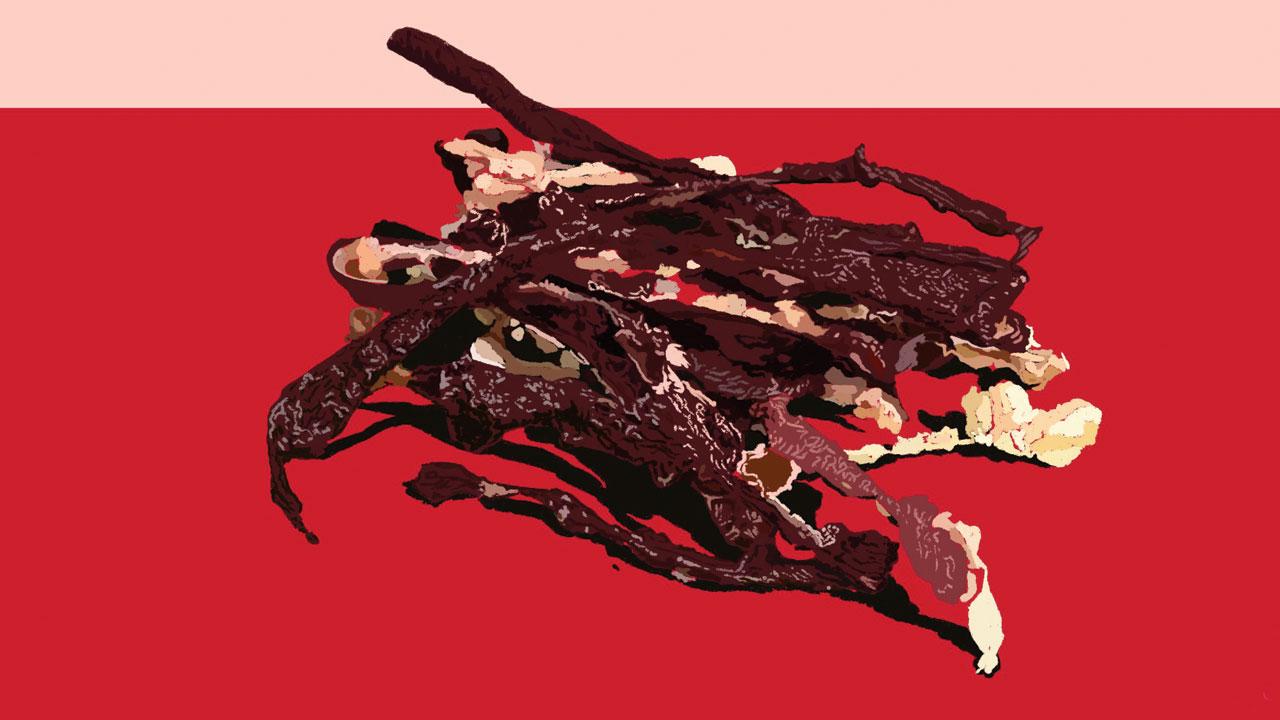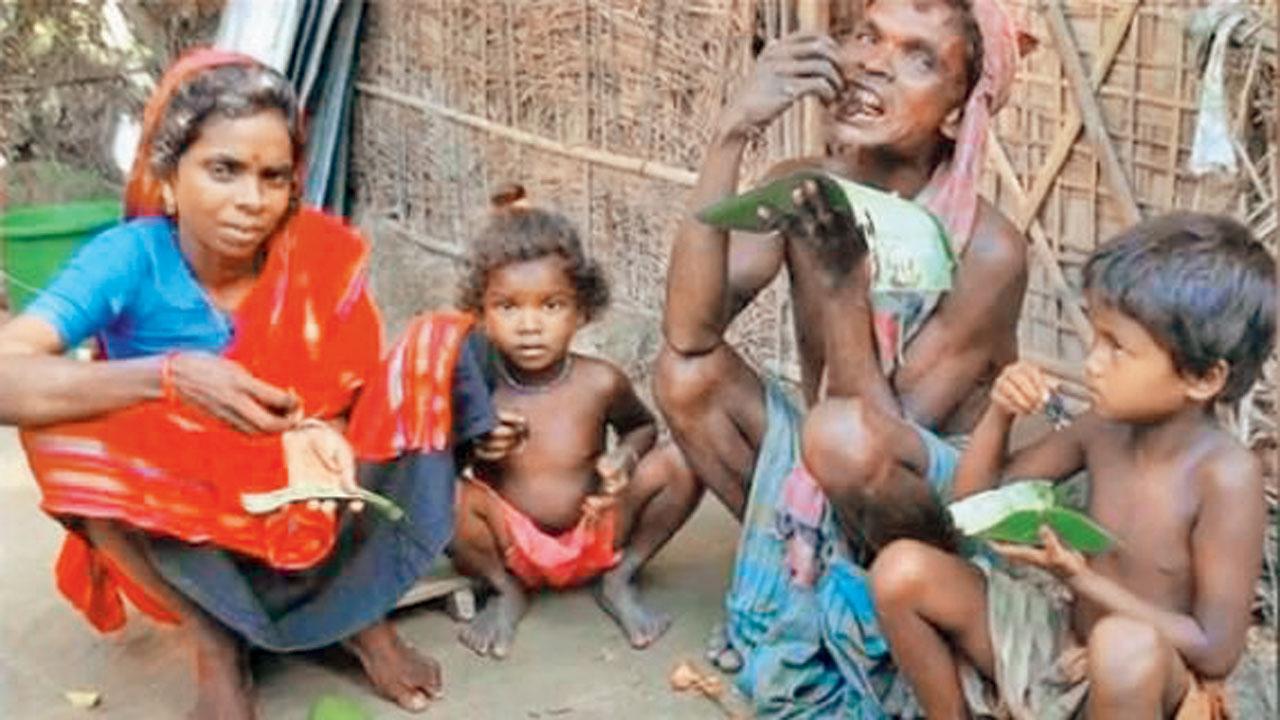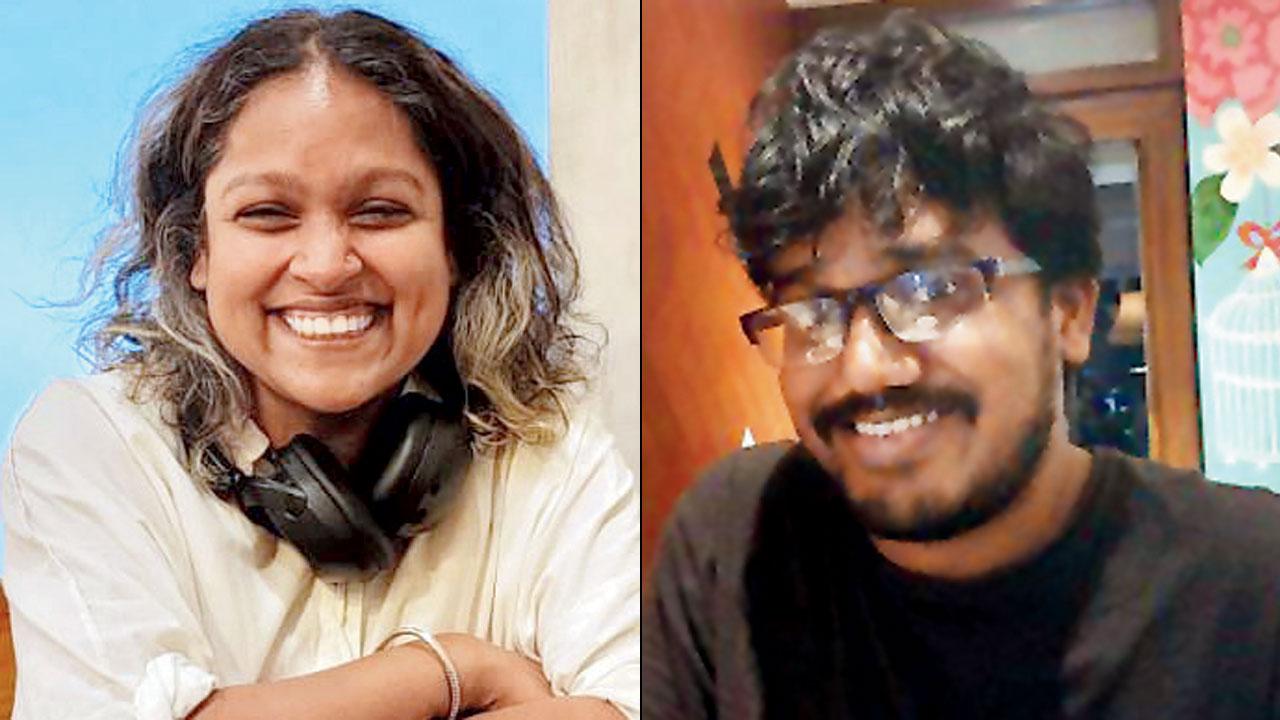A six-part online workshop will shed light on the intersection of food and caste in the country, using lived experiences and statistical data

An illustration from Bao’s series of artworks that speak about including eggs and meat in mid-day meals for children
You are what you eat, the maxim suggests. But could it be true that what you eat is somehow dictated by who you are in the first place? When food researcher Shubhra Chatterjee presents a similar question to us over a call, it sets off a discussion about food, cultural identities, and the overlap of the two. The conversation with Chatterjee is to uncover Food x Caste 101, an upcoming online workshop that she will conduct with two other experts to unveil the influence caste has on how food is viewed in the country.
ADVERTISEMENT

Bao’s illustration of chaanya, a form of sun-dried cured beef or pork consumed by scheduled castes during food shortages
“In the last 14 years of travelling around the country, documenting food, one thing became increasingly clear — caste was a big decider in what you eat and how you eat it,” Chatterjee shares, further revealing that an incident in North India where she was suggested not to document a group of Dalit kids, left a lasting impact and possibly led to the initial idea of the workshop right before the COVID-19 lockdown struck. “This omnipresent influence of caste, unfortunately, has never been documented and written about. They only come to the fore when you experience them first-hand. The workshop is a discussion of such lived experiences,” she adds.

A Musahar family. PIC COURTESY/YOUTUBE
The six-part series of workshops organised by Chatterjee, will deep-dive into subjects like hunger, food choices, belief, meat consumption, thirst, and the ritual of sharing. But how does one view hunger, a universal, primal concept, through the lens of caste? Rahee Punyashloka, a PhD scholar from JNU who will join Chatterjee, lays it out for us. The Bengal Famine of 1934, he believes, is a fitting example. “I studied the death toll and found that a majority of those who lost their lives in the famine were lower caste manual labourers who were on a journey to the cities to find employment and food,” he remarks, adding that even today, we get to observe a reflection of our past in the many labourers who wager their lives for a better future.
Punyashloka insists that contrary to popular belief, the caste factor does not manifest itself only in rural areas. Closer to home, we learn, the recent fad of superfoods says something about caste divisions too. Ragi, the scholar notes, has been a mainstay in the diets of indigenous tribes across the country. “Unfortunately, it took a shortage of foodgrains in the country for the authorities to turn to the millet and acknowledge the farmers who have been growing ragi for generations,” he sighs.

Rahee Punyashloka and Shubhra Chatterjee
Mumbai-based artist and illustrator, who goes by the pseudonym, (above) The Big Fat Bao, has been at the forefront of challenging casteist ideologies through her Instagram art page, will showcase her work at one of the sessions. For her, the observations stem from her own inter-caste household. “Growing up, dissonance arising from food habits existed not only out in the world, but also in my household. I started turning these observations into illustrations in 2021,” she shares, adding that her interpretations of meat consumption patterns will form a major chunk of her discussions at the workshop.
“As a society, we have reduced meat and egg consumption to acts of blasphemy and impurity. For lower castes, however, it is an accessible and vital source of nutrition that they are accustomed to,” the illustrator elaborates, referring to various studies that reveal the increased occurrence of anemia in women belonging to scheduled castes and scheduled tribes. “In the absence of readily available nutrition, these women find managing such a condition harder than it should be,” she adds.

Even cultures that do not frown upon meat, we learn, are further stratified based on what part of the carcass one consumes. Bao draws our attention to the Musahar community of Bihar that gets its name from the practice of eating rat meat. “These communities have sustained their lives on the diet. It is unfortunate, but it is a part of their fight for survival,” she remarks. The workshop will shed light on many such unconventional consumption habits including organ and blood consumption.
As the trio signs off, they remind us that the workshop is still an experiment in bringing these anecdotes and lesser-known facts to light. “We encourage discourse and debate. In their absence, the workshop is nothing short of three people preaching what they believe to be right, which destroys the purpose of having a discussion around the subject matter in the first place,” they conclude.
ON May 2 to June 6 (every Tuesday); 7.30 pm to 9.30 pm
LOG ON TO @historywali
Cost Rs 3,540
 Subscribe today by clicking the link and stay updated with the latest news!" Click here!
Subscribe today by clicking the link and stay updated with the latest news!" Click here!







